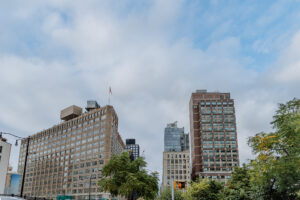Once a year, New York goes to the dogs in a huge way. But it doesn’t take the Westminster Kennel Club Dog Show at Madison Square Garden to prove that every day’s a dog day in Manhattan, Brooklyn and the surrounding boroughs. Walk down any street, any time and there’s living, four-legged proof that New Yorkers love their dogs and, therefore, have found a way to stash them in their (often) closet-sized apartments.
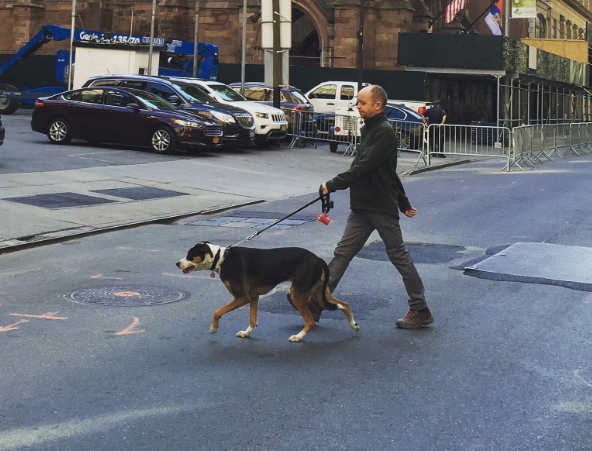 Doggy devotion is such a potent force that resourceful New Yorkers fly right past “it’s too damn hard to keep a dog in New York” and immediately hunt down solutions for housing Fido. It takes ingenuity and a lot of determination and that’s exactly what Baltimore native Jennifer Scully brought when she moved to New York with her beloved King Charles Cavalier Spaniel named Emma.
Doggy devotion is such a potent force that resourceful New Yorkers fly right past “it’s too damn hard to keep a dog in New York” and immediately hunt down solutions for housing Fido. It takes ingenuity and a lot of determination and that’s exactly what Baltimore native Jennifer Scully brought when she moved to New York with her beloved King Charles Cavalier Spaniel named Emma.

Emma on a NYC park bench.
“I found it tough. My first two apartments, I didn’t even think to ask about it and no one asked me if I had a dog, but it was on the lease that dogs weren’t allowed. I noticed that little detail months after I moved in,’’ Scully said.
From that point, Scully decided she wanted to be aboveboard about her canine companion. Subsequent apartment searches prompted her to look specifically for dog-friendly rentals. The feedback she got was sobering.
“Actually, I remember talking to one agent who told me that I should buy an apartment if I had a dog because barely any rentals allowed them. Definitely, with a higher price, there seemed to be more options, but overall it seemed like only one third of the rentals allowed dogs, if that,’’ she said.
If an apartment was newly renovated, it was very unlikely that they would allow pets. Many had size or weight restrictions, like less than 25 or 15 pounds. Some said no “guard dogs” or literally would call out the breeds they didn’t want (i.e., pit bull). Some required meeting the dog, Scully said.
“Sometimes I would go see a place, then talk to the agent and see if I could persuade them to persuade the landlord: ‘If you could just meet Emma! She’s so sweet and quiet!’ Well, she really was,’’ Scully said.
What Do NYC Laws Say About Dogs?
Unlike occupancy rates for humans, which are pretty well documented, it’s not quite as easy to figure the percentage of apartment buildings, co-ops or condos, that allow pets. One thing we can safely say: It’s far more difficult to rent with a dog than it is to buy.
That said, there is a New York City Pet Law, part of the city’s Administrative Code, which specifically outlines exceptions for tenants who, for various reason, need to keep a dog.
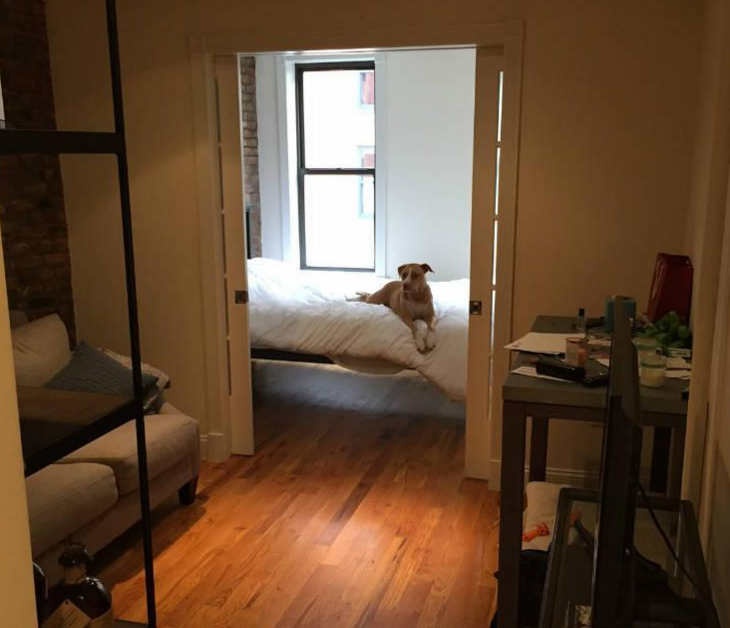 The Pet Law applies to renters living in buildings with three or more apartments and to the co-op apartment owners in all five boroughs. It also applies to condominium owners in Brooklyn, Queens, and Staten Island, but not to condo owners in Manhattan and the Bronx. Likewise, the Pet Law does not apply to New York City Housing Authority (NYCHA).
The Pet Law applies to renters living in buildings with three or more apartments and to the co-op apartment owners in all five boroughs. It also applies to condominium owners in Brooklyn, Queens, and Staten Island, but not to condo owners in Manhattan and the Bronx. Likewise, the Pet Law does not apply to New York City Housing Authority (NYCHA).
The most significant part of this law is that it provides protection for dog owners who have rented in a building that does not allow dogs, but allows an owner to keep the pet should you reside in the apartment for three months without the landlord citing you or seeking your eviction.
This does not mean that the landlord has eliminated the no-pet rule. It simply means you have been granted a waiver, because your landlord did not take action in the first three months. This exception is dependent on a tenant not hiding the dog, but being open about its presence until no action is taken for three months.
Advice From Real Estate Brokers Who Deal With Dog Owner Clients
If you’re a dog owner who is trying to find a dog-friendly listing, there are brokers who specialize in this category.
“Dogs and cats are welcome in many of New York City’s condominiums and co-ops, although in some buildings, there are restrictions such as the dog’s size, breed restrictions and the number of dogs in each apartment (which is usually no more than two), ’’said Michael Rubin, an agent with Core whose many listings are in pet-friendly buildings.
“With any obstacle it’s important to understand your client and know what type of pet they have – its size, the breed and knowing whether or not the breed is on a restricted list. Some co-ops will want to meet with the animal and make sure it fits the building’s requirements. From past experience, I recommend talking to the super, speaking to the managing agent and reading the house rules. It really comes down to knowing your client and knowing what buildings have restrictions or not,’’ Rubin said.
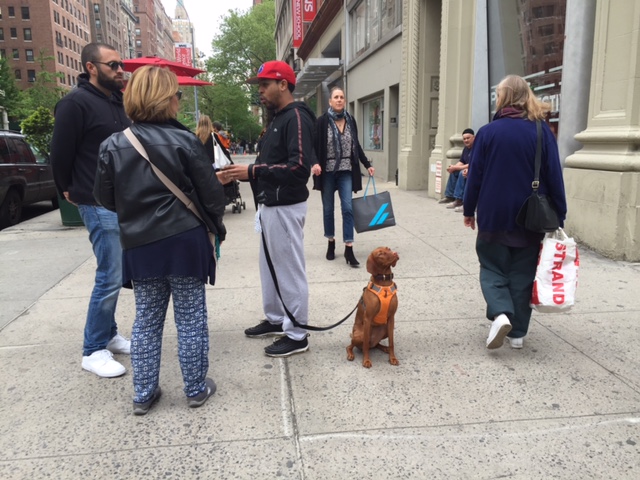 As an experienced broker with 14 years at Douglas Elliman and the owner of three dogs, Jessica Cohen said she knows the pet-friendly (and not-friendly) buildings very well. “There’s nothing like personal experience house hunting with pets that can be a faster education. Pet policies don’t change too often, so brokers in the business many years are often an encyclopedia of knowledge for these details, especially the brokers who have pets and have worked with many pet owners to find housing.’’
As an experienced broker with 14 years at Douglas Elliman and the owner of three dogs, Jessica Cohen said she knows the pet-friendly (and not-friendly) buildings very well. “There’s nothing like personal experience house hunting with pets that can be a faster education. Pet policies don’t change too often, so brokers in the business many years are often an encyclopedia of knowledge for these details, especially the brokers who have pets and have worked with many pet owners to find housing.’’
What brokers like Cohen and Krista Nickols, also of Douglas Elliman, emphasize is that rules can be different for owners vs. renters.
“Renting with dogs in condo buildings can be tricky. For instance, in the Financial District’s 20 Pine building, renters are allowed one pet, but owners can have more,’’ Nickols said.
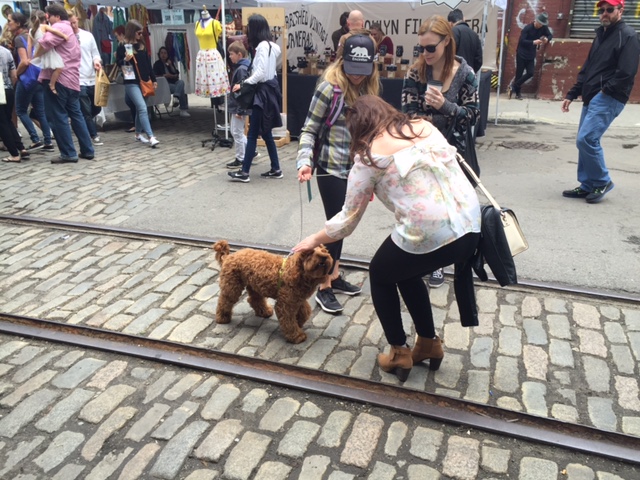 She advises anyone with a dog looking for a place to live to “be prepared to have a letter from your veterinarian.’’ Likewise, buildings do have policies on specific breeds and some take a hard stance on what they perceive to be aggressive breeds.
She advises anyone with a dog looking for a place to live to “be prepared to have a letter from your veterinarian.’’ Likewise, buildings do have policies on specific breeds and some take a hard stance on what they perceive to be aggressive breeds.
“In one downtown condo, an applicant had a dog indicated as a ‘terrier mix.’ Many dogs that are not actually pit bulls are lumped into this category and unfortunately building managers don’t always take the time to understand the nuances. But terriers are known to dig, so that excludes them from some buildings that otherwise may accept certain breeds,’’ Cohen said.
Some buildings, like Tribeca’s 88 Leonard Street, have a one dog per-unit policy, which precludes residents from getting a second dog.
But even the most pet-friendly real estate agents acknowledge that getting a dog-friendly apartment is a tougher assignment than tenants and buyers who are pet-free.
“With an individual landlord who may have multiple offers to lease their apartment, if the rent is appealing, it would be key for the prospective tenant to sell their scenario to the landlord and/or landlord’s representative. A photo that shows a calm and peaceful pet demeanor is a plus! Any accolades, training-wise, are another plus! Maybe a reference letter from a past neighbor or landlord stating that they lived next door or rented their home to you and the experience was very positive and created no nuisance or issues whatsoever,’’ Cohen said.
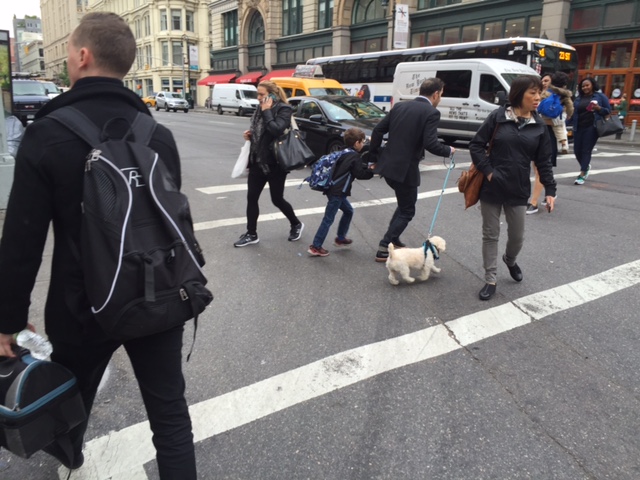 Cohen and other established brokers understand, as pet owners, that finding this kind of rental in New York is tough given “the concrete jungle here which is full of complicated rules, and crazy policies. If i can save someone time, and they are loyal, I get satisfaction from helping.’’
Cohen and other established brokers understand, as pet owners, that finding this kind of rental in New York is tough given “the concrete jungle here which is full of complicated rules, and crazy policies. If i can save someone time, and they are loyal, I get satisfaction from helping.’’
One final word of caution: Be prepared to pay extra — in security deposit and rent.
“The landlord is making an exception to have pets, as pets may cause damage or nuisance to neighbors. The risk is only worth it if there is insurance (i.e., more security to cover potential damages) or more rent (i.e., more profitable to take on the potential headaches).’’ Cohen said.
Real Estate Agency Dedicated To Placing People & Pets
The odds of finding an apartment that allows pets are so prohibitive that at least one niche real estate agency is dedicated to this task. Pet Friendly Realty NYC said that over 600,000 renters and buyers will have access to their service each year.
“There’s nothing worse than a family being separated from their pet because of building policies,” said Hal Eisenstein, a real estate lawyer-turned-tech entrepreneur who founded Pet Friendly Realty NYC.
PFRNYC acts as an intermediary to connect clients with the right services to determine if they or a family member will qualify for the protections the law provides, and then helps them find their perfect home.
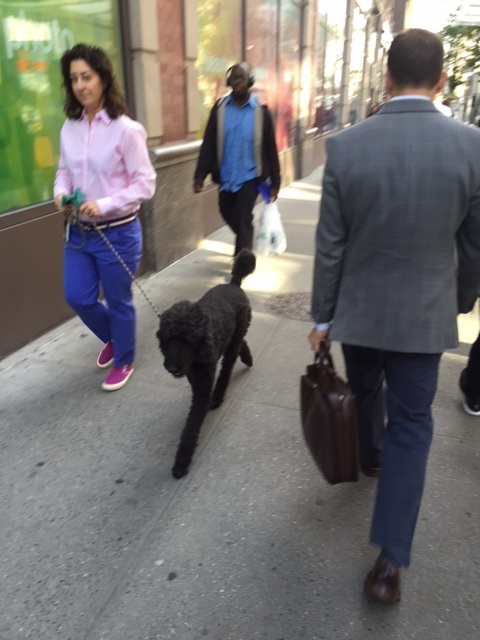 While not everyone qualifies for such protections, there is a good chance that someone in the household will. The PFRNYC is skilled at assessing each individual situation and then determining what the best course of action will be to make sure they and their furry companions run into no issues when trying to establish residency in the building of their choice.
While not everyone qualifies for such protections, there is a good chance that someone in the household will. The PFRNYC is skilled at assessing each individual situation and then determining what the best course of action will be to make sure they and their furry companions run into no issues when trying to establish residency in the building of their choice.
“An estimated 75 percent of all rental buildings in New York City do not allow pets; 45 percent of condos carry the same restriction,” said Eisenstein, who identified a much-needed service for those wishing to move in with their dogs. He said that the company uses its extensive knowledge of federal housing laws to educate clients on what their options might be when they are confronted by no-pet policies.
“Experiencing first-hand the emotional hardship this can cause, I wanted to help others by educating them on federal housing protections they may qualify for and assist them in using these laws to smooth their transition. PFRNYC intends to educate consumers as to what provisions are allowed under federal and state housing laws,” he said.
Specific Breeds May or May Not Be Permitted
There are definitely certain types of dogs that are going to find discrimination is not in their favor. Pit bulls and Rottweilers are two types of dogs that often not invited. The words “aggressive breeds” may provide co-op or condo boards with a looser ability to deny certain kinds of dogs.
Likewise, even buildings where small dogs are accepted, there could be a restriction on Chihuahuas and Pomeranians because they bit someone or barked too much in the past. It’s smart to understand these restrictions so that once you are in your new apartment and want to get a dog, you know what you can bring home.
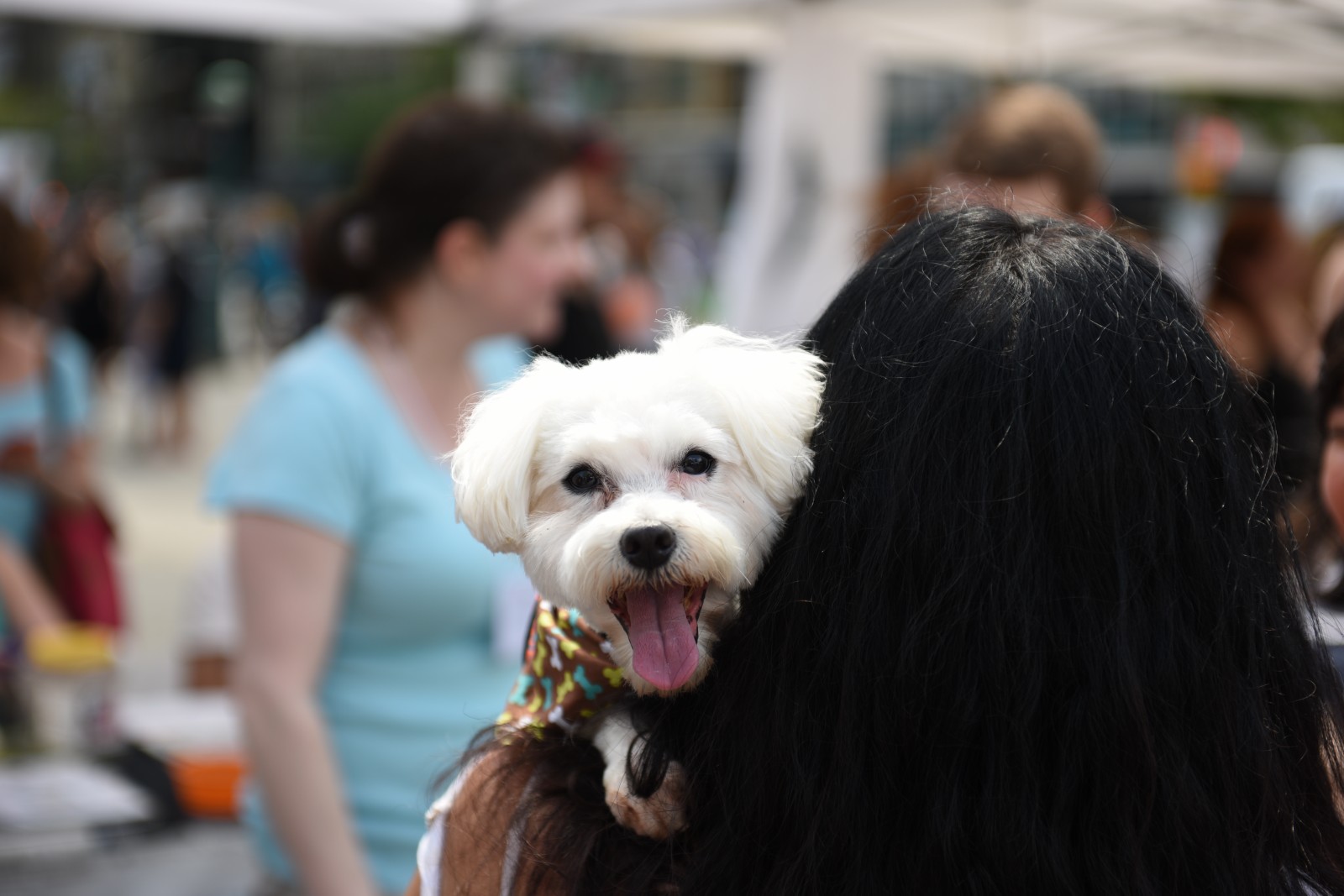 Rarely does a co-op or a condo board loosen pet policy. More often they get increasingly restrictive. Although a few buildings may look to attract better sales, the dogs they would accept may have to be able to be carried in the elevator or in public spaces.
Rarely does a co-op or a condo board loosen pet policy. More often they get increasingly restrictive. Although a few buildings may look to attract better sales, the dogs they would accept may have to be able to be carried in the elevator or in public spaces.
It’s no wonder that the French Bulldog is the favorite dog of New York City residents. The English Bulldog is No. 2, followed by Labs, Golden Retrievers and Yorkshire Terriers.
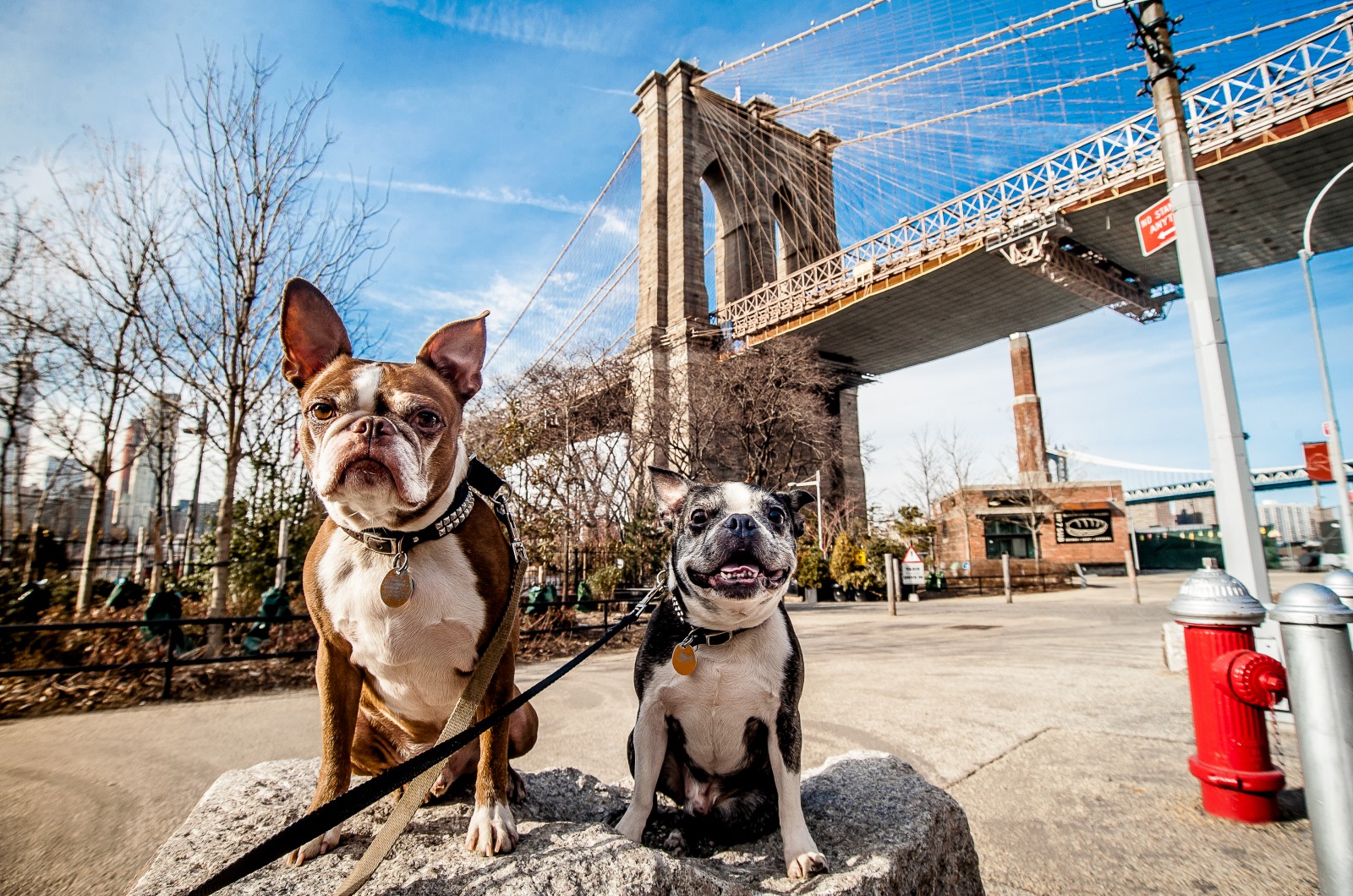 For further fun facts about NYC dog breeds, we have to cite the American Kennel Club’s breakdown by neighborhood:
For further fun facts about NYC dog breeds, we have to cite the American Kennel Club’s breakdown by neighborhood:
- Murray Hill: French Bulldog
- New Dorp: German Shepherd
- Park Slope: French Bulldog
- Riverdale: Havanese
- Tribeca: Bulldog
- Upper East Side: Cavalier King Charles Spaniel
- Upper West Side: Labrador Retriever
- Washington Heights: French Bulldog
Related:








